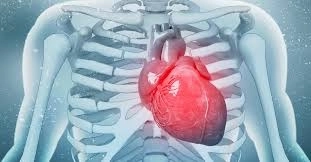
The Difference Between Heart Muscle Weakness and Atherosclerosis
Published on: 2025-06-21 | Written by: Dr. Dina Yousry, Cardiovascular Diseases
Many patients confuse the terms “heart muscle weakness” and “atherosclerosis.” While both conditions affect the heart, they differ in causes, symptoms, and treatment. In this article, Dr. Dina Yousry, Consultant in Cardiology and Vascular Diseases, explains the key differences and the importance of accurate diagnosis.
Definitions
1. Heart Muscle Weakness (Heart Failure):
A condition where the heart loses its ability to pump blood efficiently, leading to fluid buildup, fatigue, and shortness of breath.
2. Atherosclerosis:
A narrowing or blockage of the arteries caused by the buildup of fats and cholesterol on their walls, restricting blood flow to the heart or other organs.
Causes
| Condition | Causes |
|---|---|
| Heart Muscle Weakness | High blood pressure, previous heart attack, valve disease, myocarditis, genetic factors. |
| Atherosclerosis | High cholesterol, smoking, diabetes, hypertension, physical inactivity, unhealthy diet. |
Symptoms
| Symptom | Heart Muscle Weakness | Atherosclerosis |
|---|---|---|
| Shortness of breath | ✅ Very common | ❌ Rare in early stages |
| Chest pain | ❌ Rare | ✅ Key symptom |
| Swollen legs/ankles | ✅ | ❌ |
| Fatigue | ✅ | ✅ |
| Irregular heartbeat | ✅ | ❌ |
Diagnosis
Dr. Dina Yousry explains that diagnosis depends on specific tests:
-
For Heart Muscle Weakness:
-
Echocardiogram
-
Cardiac function tests
-
ECG
-
-
For Atherosclerosis:
-
Lipid profile
-
Diagnostic catheterization
-
CT angiography
-
Treatment Options
Heart Muscle Weakness:
-
Diuretics and vasodilators
-
Medications to improve heart contraction
-
In advanced cases: pacemakers or heart transplantation
Atherosclerosis:
-
Cholesterol-lowering medications
-
Anticoagulants
-
Lifestyle changes
-
Interventional procedures (angioplasty) or surgery in severe cases
When Should You See a Doctor?
Dr. Dina Yousry advises seeking medical attention if you experience:
-
Chest pain during physical activity
-
Sudden shortness of breath
-
Swollen limbs or sudden weight gain
-
Frequent dizziness or fainting spells

